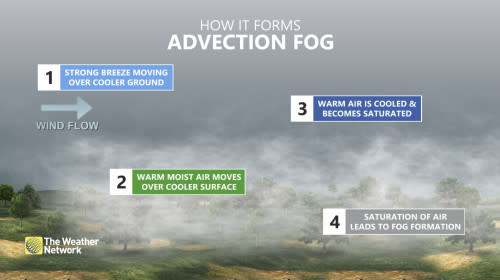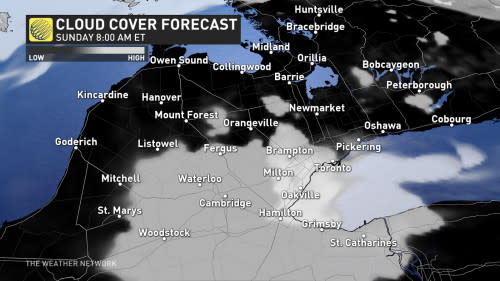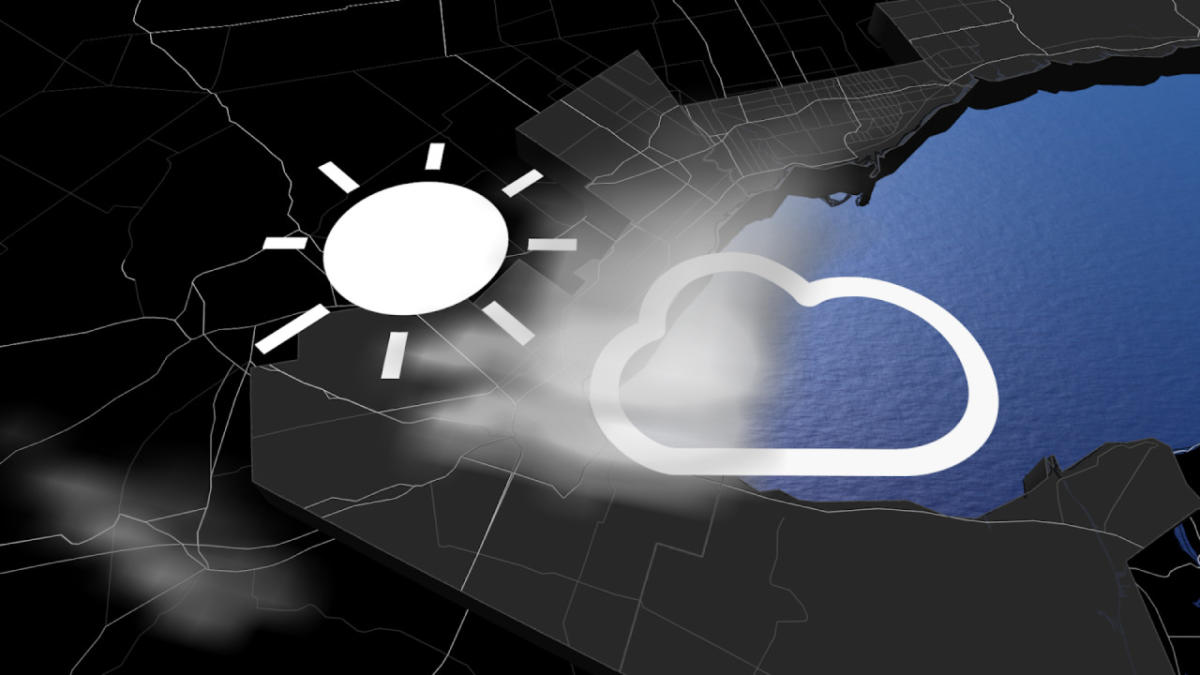It’s a gorgeous weekend across Ontario as plentiful sunshine and warm temperatures dominate skies over the province.
That’s the story everywhere except for communities near Lake Ontario, where a stubborn blanket of fog has left folks feeling ripped off from the promise of a delightful final full weekend of summer.
DON’T MISS: It’s not your imagination—here’s why fall is the foggiest season

The fall months are prime time for fog formation. Water retains its heat long after air temperatures begin to drop with the changing seasons.
The contrast between warm lake waters below and cooler air above, along with light winds across the area, provide the perfect ingredients for the development of fog. We’re seeing this process play out across the shores of Lake Ontario and inland pockets of southern Ontario this weekend.
Foggy spells ahead for parts of the Golden Horseshoe
Forecasting precisely where the fog will develop is tricky due to the chaotic nature of marine fog along the shoreline, as its thickness and location fluctuates with temperatures, wind direction, and the time of day.
Saturday afternoon provided the perfect example of a contrast between lakeshores versus farther inland. Toronto-Pearson soared into the mid-20s beneath the Saturday sunshine, while the Toronto Waterfront only managed to climb into the upper teens thanks to the fog.


More fog is on the way over the next couple of days as calm winds and cooler nights provide the optimal setup for low visibility throughout the region. In addition to Toronto, communities like Hamilton, Ancaster, Kitchener-Waterloo, and Grimsby are all locations subject to thick fog over the next several days.
We could see a pattern change early next week as a result of a disturbance hanging around off the Carolina coast. It’s a coin-toss whether or not this system makes it far enough inland to affect southern Ontario, but moisture will attempt to push north by late Tuesday and increase the risk for showers.
However, even this potential system won’t be able to dislodge the stout ridge of high pressure parked over the region right now.
Dense fog is a major driving hazard
Fog is extremely dangerous for motorists. Visibility can change rapidly over short distances, leading to hazardous travel conditions from one neighbourhood to the next.
STAY SAFE: Follow these tips for staying safe while driving in thick fog
Drive slower to increase your reaction time in case you have to stop in a hurry. Try not to pass other vehicles during periods of dense fog, as well, since increasing your speed to pass reduces your reaction time.
Low-beam headlights or fog lights can help you see obstacles and be seen by others. It’s never a good idea to drive with your hazard lights on—they can confuse other drivers. Only use hazard lights if you’re pulled safely off the road.

